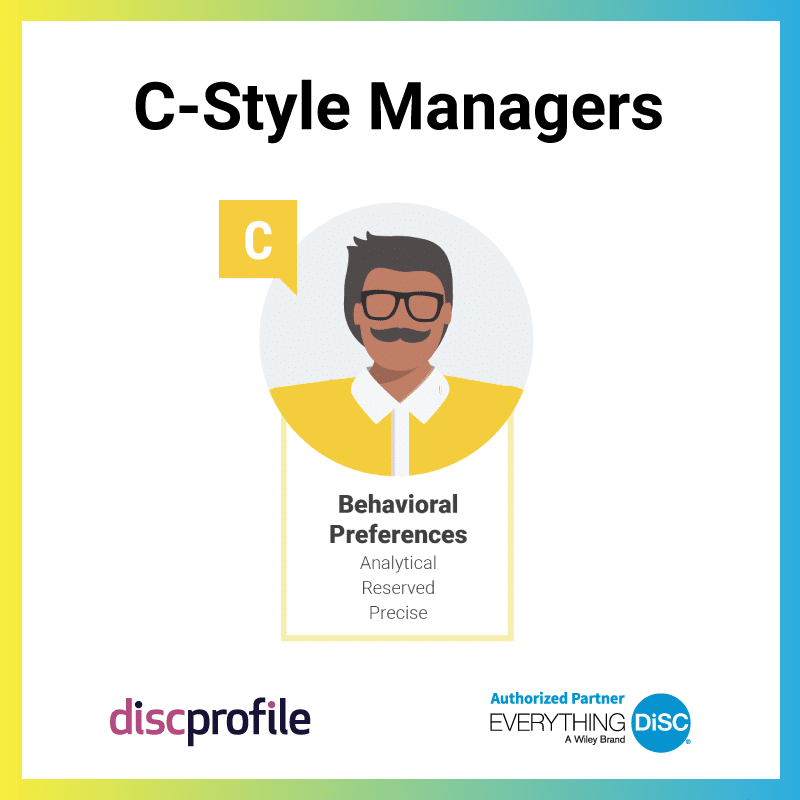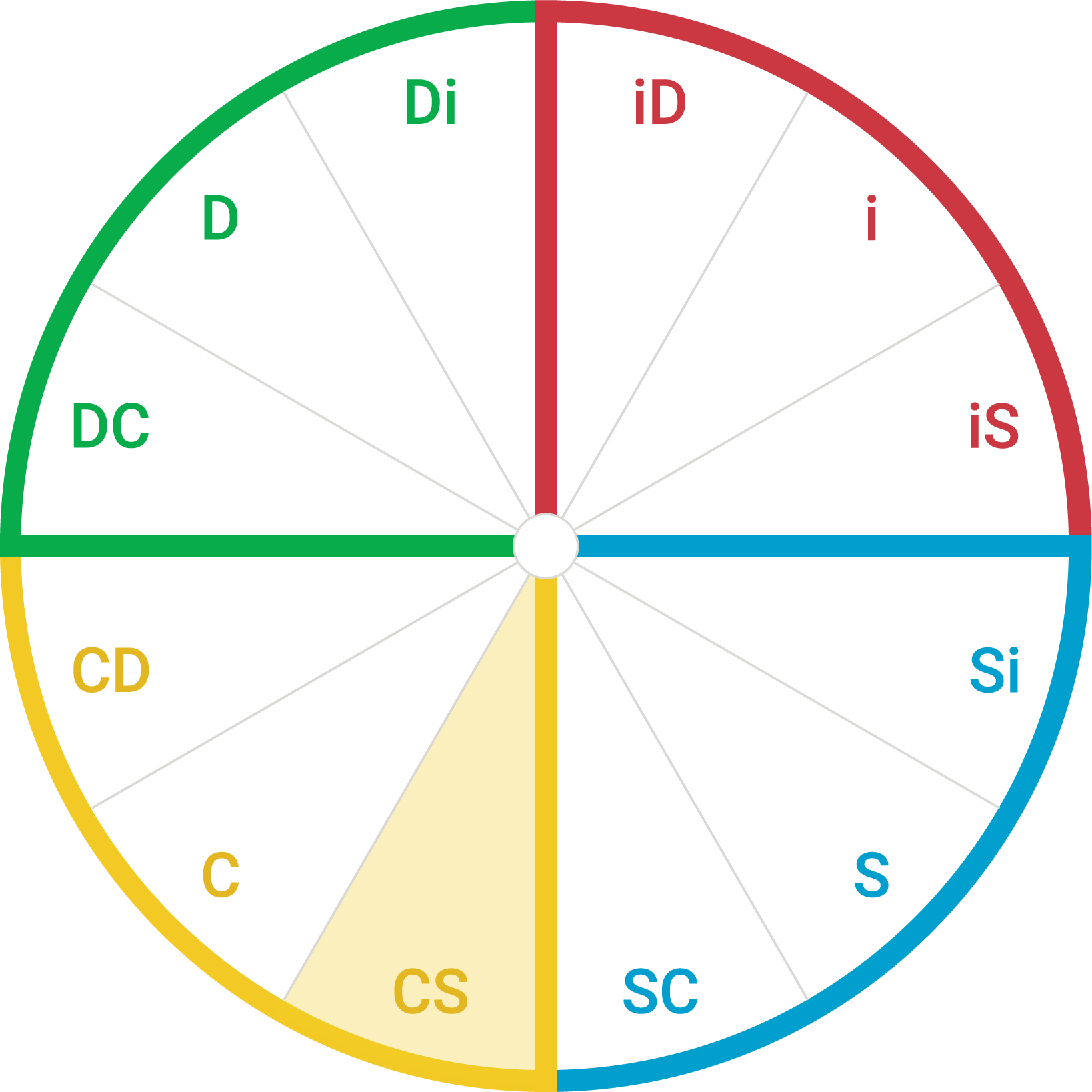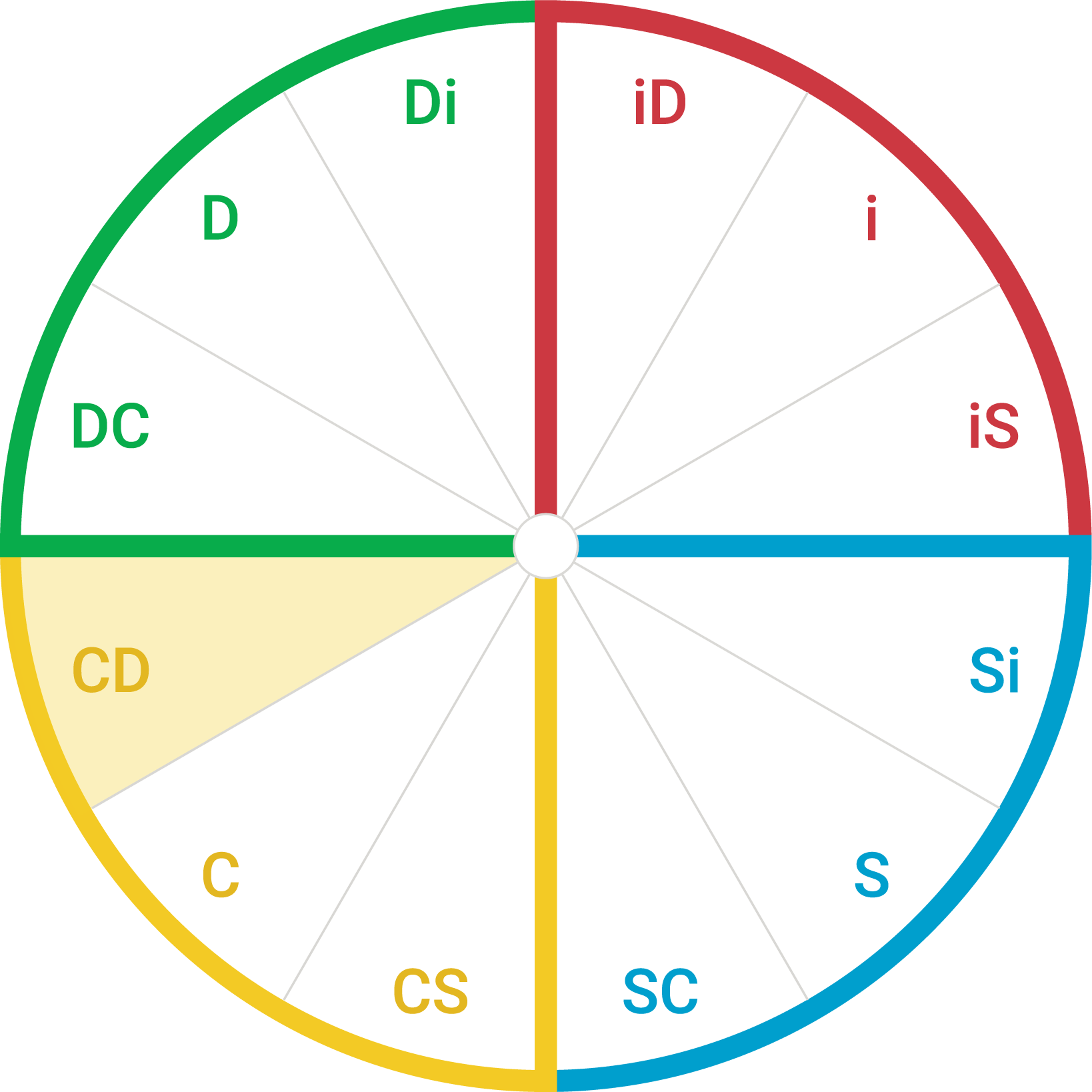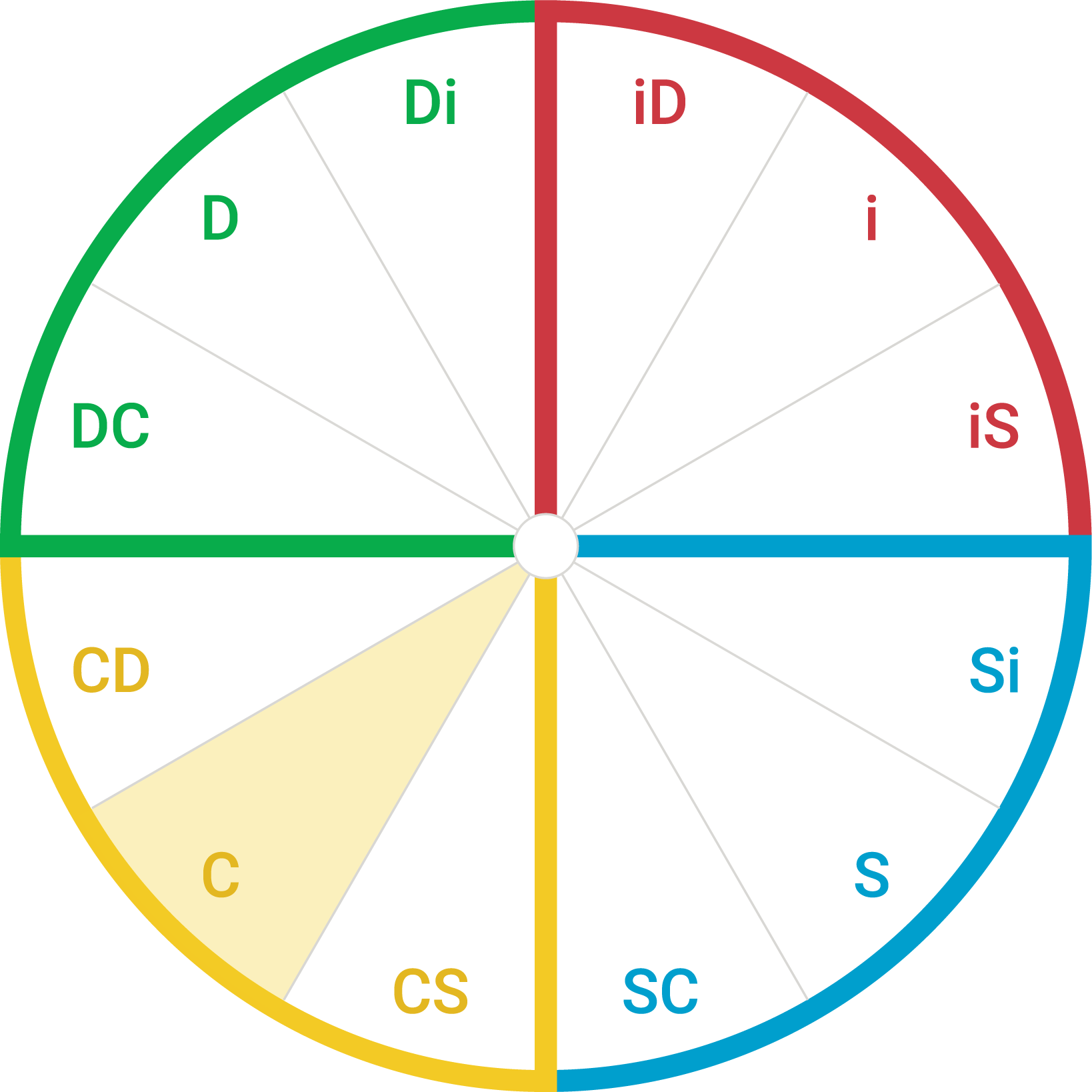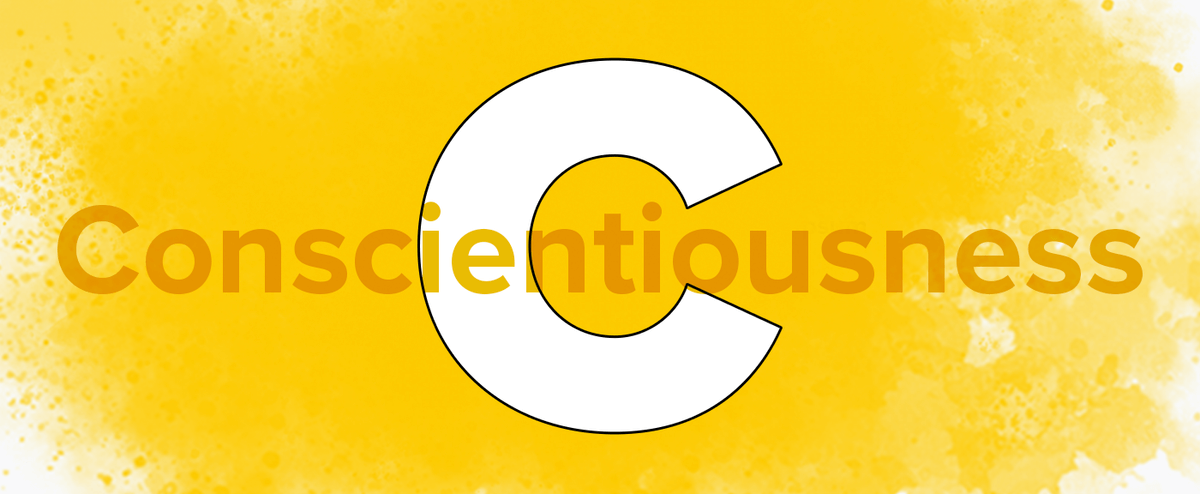
C style
C is for conscientiousness
People with the DiSC C style personality are usually analytical, precise, and determined. You might notice them paying close attention to accuracy, maintaining stability, and challenging assumptions.
What does the C in DiSC mean?
The C in the Everything DiSC® model stands for conscientiousness. People with C styles employ objectivity, analysis, and determination to stick with a problem until they solve it. They are strong critical thinkers who are naturally skeptical and self-controlled.
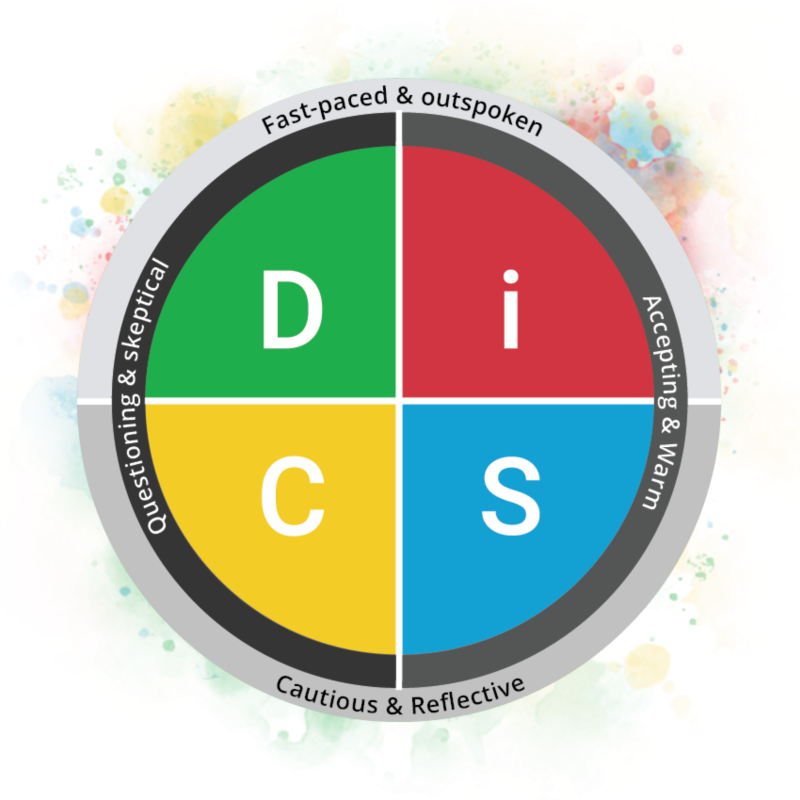
How do you get typed as a C style in DiSC?
The DiSC model, at its foundation, is two-dimensional, measuring:
- pace (from fast-paced and outspoken to cautious and reflective)
- agreeableness (from questioning and skeptical to accepting and warm)
The C-type personality is both cautious and reflective, and also questioning and skeptical.
These two scales are just a starting place for the Everything DiSC assessment. This assessment will tell you not only your main DiSC style (D, i, S, or C) but which of the 12 sub-styles best represents you and how strongly you align with those traits.

Dot placement
There’s a lot of variety within each of the four main DiSC styles because human personality is so wonderfully varied! People with C styles share many high-level traits, but each C-style person manifests the style differently. The dot placement on your Everything DiSC profile will help you discover your unique place on the DiSC map.
For example, you might be strongly inclined to the CD style with your dot appearing on the far edge of the circle and between the C and D lines. Or you might be slightly inclined toward the C style with your dot appearing closer to the middle and centered in the C quadrant.
Learn more: DiSC dot and priorities explained


